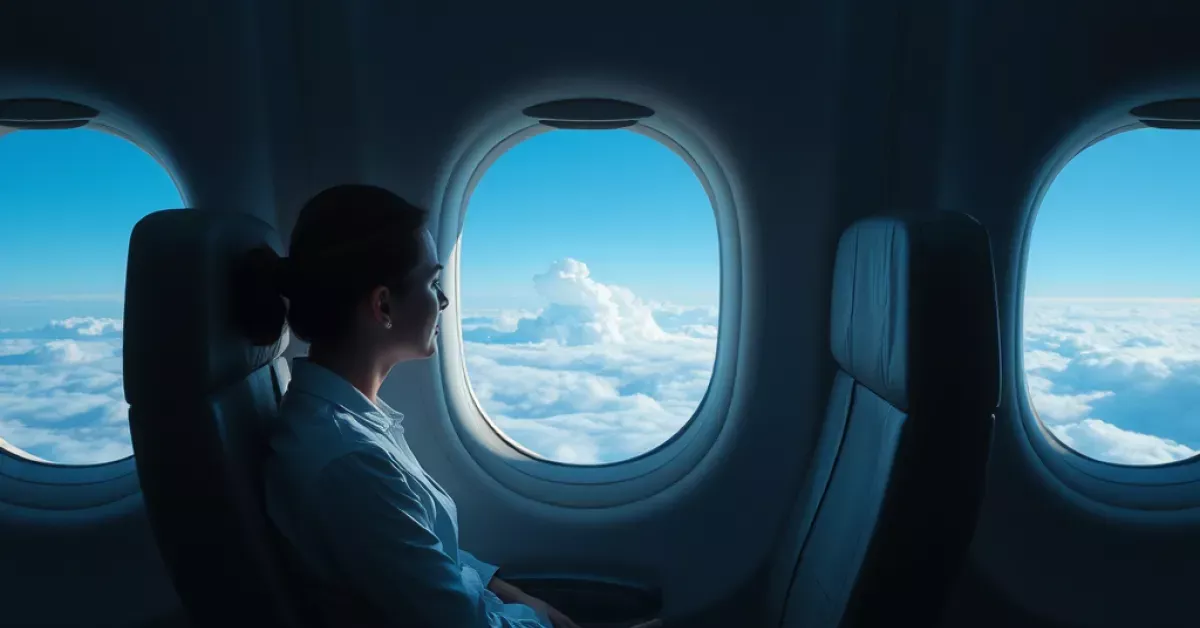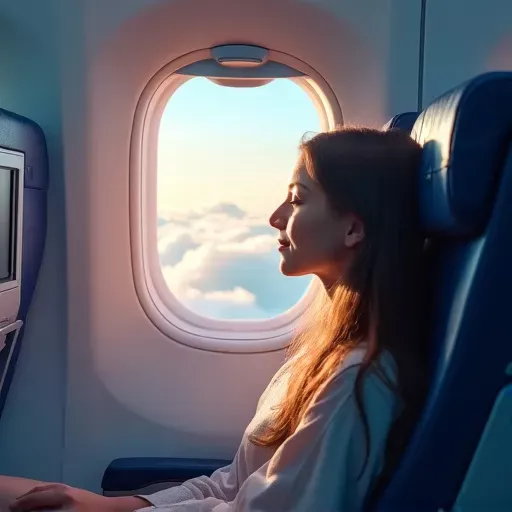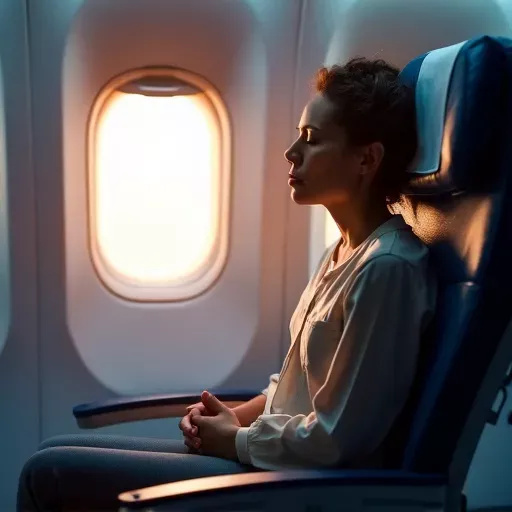Flying is a marvel of modern engineering and can whisk us away to dream destinations, but for some, the skies are filled with anxiety and fear. Many passengers see air travel as an ordeal rather than an adventure. This article uncovers the psychology behind flying anxiety and offers practical strategies to ease the journey, transforming trepidation into an exciting opportunity for adventure.

The Psychology of Flying: Delving into Passenger Anxiety
Understanding Fear in the Friendly Skies
For some travellers, the sight of an airplane or the thought of flying at 30,000 feet fills them with dread instead of excitement. Passengers who experience severe anxiety may find the friendly skies to be anything but welcoming. Fear of flying affects people from all walks of life—even frequent flyers are not immune.
The Roots of Air Travel Fears: A Psychological Insight
The fear often stems from a feeling of losing control, mixed with an overwhelming sense of vulnerability. Others might suffer due to past negative experiences. Understanding these roots is essential to addressing and alleviating flying anxiety.
Anxiety Triggers: What Causes Flight Nervousness?
Anxiety triggers on flights can vary significantly. Common causes include unfamiliar environments, the claustrophobic nature of the cabin, the turbulence sensations, or even the fear of hijacking. Noise during takeoff and landing can also be unsettling. Recognizing these triggers can help manage one’s response to them.
Emotional Support and Airline Services: Aiding Anxious Passengers
Calming Strategies Airlines Are Implementing
Many airlines have started to acknowledge flying anxiety by implementing calming strategies. Flight attendants are trained to be more attentive, offering reassuring conversations. Some airlines provide videos explaining the safety aspects of flying, helping to calm nerves with information.
Inflight Comfort Options: Designed for the Anxious Traveller
Comfort kits featuring eye masks, headphones, and soothing music playlists are becoming standard, designed to keep passengers relaxed. Additionally, airlines sometimes offer meditation apps and access to quiet zones, aiming to create a more serene flying experience.
Flight Nerves Unveiled: Identifying Passenger Anxiety
Your Mind vs. Reality: Understanding the Fear of Flying
Our minds often amplify fear when flying. Rationality battles with imagination, as common worries like mechanical failure or poor weather loom larger than life. However, understanding that these scenarios are extremely rare can help ease these fears.
Anxiety Tips for a More Relaxed Journey
To combat anxiety, staying informed and adopting a few simple techniques can be beneficial. Listening to calming music or engaging in conversations can deflect restless thoughts. Remember, the statistics are on your side: flying remains one of the safest ways to travel.
Coping Mechanisms for a Stress-Free Flight Experience
Therapeutic Flying: Embrace Mindful Travel
Mindful travel can turn flying into a therapeutic experience. Focusing on the journey rather than the destination helps calm the mind. Acting deliberately and thoughtfully at each stage of the travel process can transform anxiety into anticipation.
Relaxation Techniques for Soothing Flight Nerves
Relaxation exercises, such as deep breathing and guided imagery, can be handy tools. Imagine flying over amazing landscapes or relaxing on a beach. These practices can shrink your fears to a more manageable size and create a peaceful mindset.
Overcoming Fears: Practical Anxiety Management
To manage overwhelming anxious feelings, practice progressive muscle relaxation by clenching and releasing muscles, or recite positive affirmations. These methods reinforce calmness and enable travellers to enjoy the flight experience.

Transforming anxiety into anticipation during a serene flight.
Travel Stress Management: Preparing Before the Flight
Pre-Flight Preparation: Key to Reducing Nerves
Preparation is crucial. From booking familiar airlines to packing a calming kit, being ready can significantly reduce anxiety. Arranging a visit to the cockpit, if available, might demystify the flying experience and provide comfort.
Anxiety Triggers: Recognising and Addressing Them
Recognize personal anxiety triggers and consider how they affect you. Writing them down can demystify fears, and discussing with travel friends can provide insight. Accepting the triggers is the first step towards overcoming them.
Inflight Relaxation Techniques: Staying Calm in the Air
Breathing Exercises and Their Effectiveness
Controlled breathing techniques can have a profound calming effect during a flight. Slow, deep breaths, inhaling through the nose and exhaling through the mouth, can reduce heart rate and stabilize the mind. Just a few minutes can make a big difference.
Mindful Distractions: Keeping Your Mind Occupied
Staying occupied with engaging activities, such as puzzles or a good book, can distract your mind. Download a captivating movie or podcast, ensuring your journey has entertaining diversions.

A passenger demonstrates calming breathing exercises amidst the clouds.
Mindful Travel: Turning Anxiety into Adventure
The Art of Transforming Fear into Excitement
Reframe your fear as a thrilling experience. Each flight offers a new perspective on the world, quite literally taking you above it all. Focusing on the adventure and envisioning the destination can replace nerves with excitement.
Discovering Joy in the Journey: A Positive Perspective
Derive joy from the sheer magic of flying. Taking off from the ground and reaching new heights countless miles in the air is an accomplishment. Viewing it as a celebration rather than a challenge can completely change your flight experience.
The Road Ahead: Future Therapeutic Innovations in Air Travel
Airline Innovations: Enhancing Passenger Mental Health
The future holds promising technological advancements for easing air travel anxiety. Virtual reality modules that stimulate calming environments and AI-driven personalized inflight assistance could become commonplace, enhancing mental health and comfort.
Embracing New Technologies for Enhanced Comfort
Advanced seating with massage functions, mood lighting, and enhanced air filtration systems are being researched, aimed at ensuring passenger well-being. These innovations mark the journey to more comfort-laden flights in the future.
Flying can be more than a necessity; it can become a cherished part of travel if approached with the right mindset and tools. Empowering oneself with strategies and understanding the psychology of flying transforms fear into a friendlier feeling, paving the way for skies filled with curiosity and wonder. With a wealth of coping mechanisms and airline innovations, the future of flying looks bright, offering better support to those with a fear of flying. Exciting adventures await—after all, the sky’s the limit!
